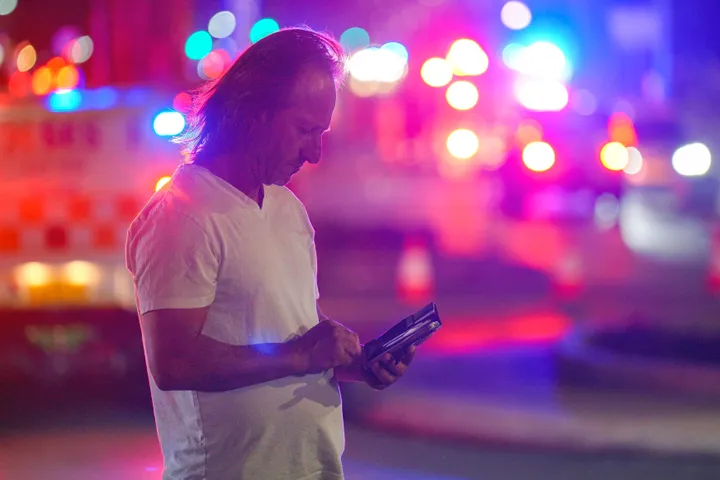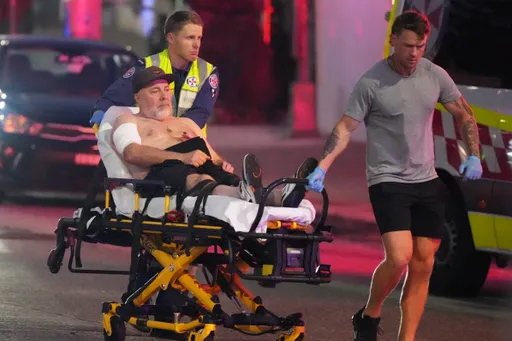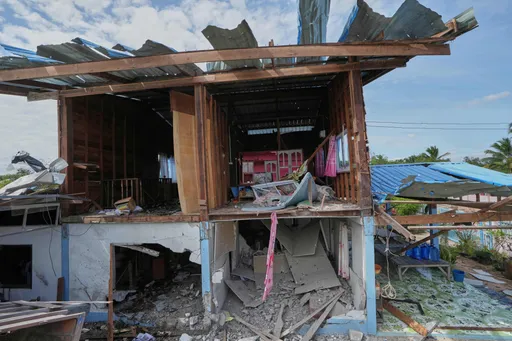We all have a lot of questions out there about the coronavirus disease, which is caused by the virus known as severe acute respiratory syndrome coronavirus 2 or SARS-CoV-2.
As experts and states struggle to contain the pandemic, we try to bring some clarity to the online explosion of information — some of it irrelevant and some of it utterly ridiculous.
Should I be worried about children getting the coronavirus?
Dr Arisina Ma, president of Hong Kong’s Public Doctors Association, says paediatric infection is rare and mild.
“There is no scientific explanation at this stage,” Ma tells TRT World.
“The median age is 34 to 62,” she says.
Who is at risk for really falling very sick with the coronavirus?
“Age is definitely a factor as is being a man and over the age of 60,” Ma says.
“Chronic illnesses, like diabetes, ischaemic heart disease, chronic obstructive airway disease, are linked to severe infection,” explains Ma.
Ma, an internal medicine physician who specialises in geriatrics, is working on the front line of the epidemic, in the isolation wards.
How far does the virus travel?
Well, uncovered coughs and sneezes can travel up to eight metres. Business Insider draws an uncomfortably vivid picture by describing that as the length of five office desks.
Since much about the virus is still not known, it is unclear exactly how long the virus can survive outside a host.
How long does it stay on surfaces?
On hard surfaces, such as tables and chairs, coronaviruses can survive more than 48 hours in cool temperatures and low humidity, Ma says.
“On gloves or [hospital] gowns, it can survive for several hours to days.”
Is the coronavirus disease really like the flu?
Doesn’t the flu kill more people? Isn’t it more deadly? This is the argument being dragged out like a tired party trick by everyone — even US President Trump.
But what do experts say?
As things stand, the coronavirus has a higher mortality rate.
Ma tells TRT World, “The mortality rate of the flu is 0.1 percent and that of coronavirus is 1 to 2 percent.”
The World Health Organization says coronavirus is more deadly than the seasonal flu, putting the case fatality rate between 3 to 4 percent.
Also, she reminds us, there is no vaccine available as yet to protect people from the SARS-CoV2, which causes the coronavirus disease.
As WHO’s Director General Tedros Adhanom Ghebreyesus says, Covid-19 is a more severe disease which people have not built up immunity to, unlike the seasonal flu.
What does 'case fatality rate' mean and can it be taken at face value?
The WHO explains that as the number of reported deaths divided by the reported cases.
“The death rate will change, likely decline, as more cases are diagnosed and as milder or asymptomatic cases are factored in,” Dr Anthony Fauci from the US National Institute of Allergy and Infectious Diseases points out to JAMA.
That is why statistical models give lower CFRs, they take into account different variables to calculate more realistic fatality rates, variables such as asymptomatic cases as well as underreporting, Fauci says.
“But a model is only as good as the assumptions that go into the model,” he adds.
So no, case fatality rates cannot be taken at face value. Even the WHO cautions the “true mortality of Covid-19 will take some time to fully understand.”
If I get infected with SARS-CoV-2, how do I make sure I don’t pass it to others?
If you sift through the advisories, comb through expert opinions and read the many many articles out there, it would seem the medical community is flip-flopping on masks like they did with red meat or fat.
There is a bottom line though — masks can help, especially if you have coronavirus disease because it will help you from spraying it on others.
Ma agrees. “In order to avoid spreading the disease, I would like to suggest wear a surgical mask most of the time,” she says.
She also advises patients to “maintain good hygiene and avoid social activity and close contact with the family.”
What’s key for recovery from coronavirus?
Close monitoring for coronavirus symptoms to change or worsen is essential to ensure recovery.
In Hong Kong, “we give almost all patients treatment,” Ma says.
“But I know that there are countries which adopt expectant treatment for mild cases.” (Expectant treatment means closely monitoring a patient’s symptoms for change or deterioration.)
“I would like to suggest to those patients to stay healthy, avoid smoking, closely monitor their symptoms and seek medical attention if they feel breathing difficulty.”
Can’t coronavirus antibodies protect us from recurrence?
When a virus enters your system, your body summons up its immune system, which deploys antibodies. Antibodies then attach to the viruses and alert the white blood cells, which then destroy them.
Studies show natural immunity against flu-like viruses is quite lasting, in some cases more than the vaccine but, for now, the SARS-CoV-2 antibodies are also an unknown.
“People usually develop antibodies from day seven onwards,” Ma tells TRT World. “That is when they start to recover,” she says.
“However, we are not sure how long [the antibodies] lasts.”
If the level of antibodies drops quickly, recurrence is possible, she says.
When will I stop being contagious after I recover from coronavirus?
Ma says at her hospital in Hong Kong, patients on antiviral treatment start to recover a few days later.
“It may take them seven to 14 days to return to a relative asymptomatic condition,” the doctor says, “but they are still carrying the virus.”
“We take the standard of two consecutive negative tests to mean a person is no longer contagious,” she explains.
“We found that some patients still fail to achieve that a few days or even a week after recovery. If you can still find the virus inside the respiratory tract secretion, stool, or other secretions, that means s/he is still contagious.”
What’s the most important thing about the coronavirus which we need to know to end the pandemic?
One important question about this pandemic is how the SARS-CoV-2 performs in hot weather or summer, Ma tells TRT World.
"It decides whether the pandemic ends in summer or not."
























